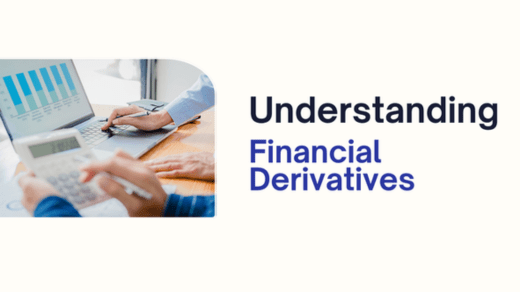Derivative financial investing is risky and not a good choice for beginner or intermediate investors. Make sure that you know your financial basics, it’s like an emergency fund and retirement contributions, squared away before you delve into more speculative investments. And even then, customers want to allocate substantial savings to derivatives. They are purchasing fund-based derivative products using a typical investment account leverage mutual fund or an exchange-traded fund, which can use options or futures contracts to increase returns, or an inverse fund, which uses derivatives to make investors’ money when the underlying market or index declines. Fund-based derivative products like this help decrease some of the risks of derivatives, like counterparty risk. But they also aren’t generally meant for long-term, buy-and-hold investing and can still amplify losses.
If individuals want more direct exposure to personal loan derivatives, they might be able to place options and futures trades as individual investors. Not all brokerages allow for this, though, so make sure your platform of choice is equipped for derivatives trading. Understanding financial derivatives is crucial for making informed investment decisions in a fast-paced financial landscape. For residents of Ghaziabad seeking personal loans, knowledge of financial derivatives can help optimize borrowing and investing strategies.
What are Financial Derivatives?
The value of financial derivatives is dependent on the underlying asset in the hands of a customer. The assets can be stocks, bonds, commodities, currencies, houses, cars, etc. The value of the underlying asset changes with the market movements. The important motives of a derivative contract are to speculate on the underlying asset prices in the future and to guard against the price changes of an asset or commodity. Derivative contracts can also act as a pillar for customer investment to limit losses. Derivative contracts are used to fix the price of assets to minimize losses. Dealing in the commodities market doesn’t necessarily involve the physical delivery of the commodity.
In the future, a business contract for onions doesn’t involve buying and selling onions. The value of the contract is derived from the cost of buying and selling onions. Financial derivatives are financial instruments that derive their value from underlying assets, such as stocks, bonds, commodities, or currencies. These instruments enable individuals to manage risk, speculate on price movements, and leverage investments in personal loans in Ghaziabad.
Types of Financial Derivatives
Futures are a type of derivatives contract in which the buyer and seller agree to fix the quantity and price of the asset. The agreement has the quantity, price, and date of the transaction mentioned. Upon entering into the contract, the buyer and seller are obligated to fulfill their duty regardless of the asset’s current market price. Futures contracts are popular for hedging risk and speculation. The main purpose is to fix the price of the asset against volatility. With a futures contract individuals can take advantage of the margins. A margin requirement is a minimum amount that must be deposited in order to trade futures on an exchange. The higher the leverage, the lower is the margin. if a commodity’s exchange margin is set at 5%, the leverage is 20 times. This indicates a deposit value of INR 5; you can trade for INR 100. The trader must repay the entire amount when the contract expires.
As a result, higher leverage indicates high risk. Contracts that take place through a broker are exchange-traded derivatives. Futures and options are exchange-traded derivative contracts. While purchasing a stock option customers will be provided with the option instead of the security. Contracts that take place directly between two parties are over-the-counter derivative contracts. Forwards and swaps are over-the-counter contracts.
Financial Derivatives Impact Personal Loans in Ghaziabad
Financial derivatives help manage interest rate risks associated with personal loans in Ghaziabad. Derivatives enable individuals to hedge against market volatility and protect their investments. Financial derivatives provide opportunities to leverage investments and amplify returns. There are a lot of benefits for Understanding Financial Derivatives for Personal Loan Borrowers in Ghaziabad Knowledge of financial derivatives enables borrowers to make informed investment decisions. Derivatives help mitigate risks associated with market fluctuations.
Understanding financial derivatives optimizes borrowing strategies for personal loans in Ghaziabad. Seek expert guidance to understand financial derivatives. Evaluate risk appetite before investing in financial derivatives. Stay informed about market fluctuations. Understanding financial derivatives is essential for residents of Ghaziabad to avail themselves of personal loans. By grasping financial derivative concepts, individuals can optimize borrowing strategies, manage risk, and potentially amplify returns on investments.





